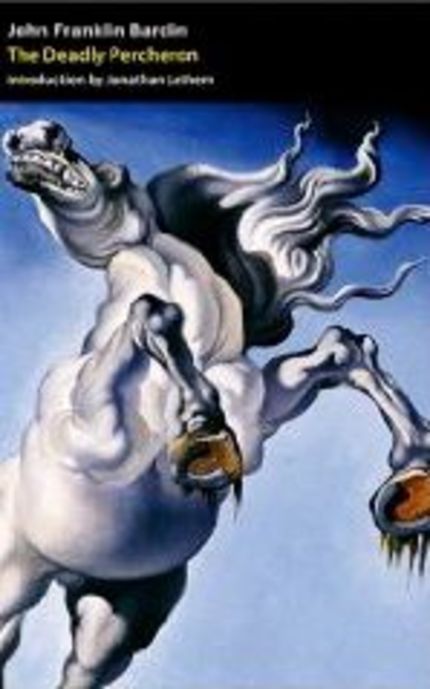THE DEADLY PERCHERON: by John Franklin Bardin

From time to time a book is so cinematic it begs to be reviewed on ScreenAnarchy. A more unusual book I haven't read in quite some time. A deadly serious excursion into identity formation and the psychology of guilt The Deadly Percheron offers all the conventions one associates with pulp noir storytelling and adds a deformed protagonist, hypnotist torturers, little people who may or may be leprechauns, and a startling denoument that may or may not reveal everything we need to know to decide the protagonists fate. Yet the narrative voice offers a soft reflective tone that conjures the most literate noir. If this were made into a film it could have easily been produced by Val Lewton and starred George Saunders or Tom Conway (I Walked With A Zombie, Cat People).
A man walks into a psychiatrist office and says...what sounds like the beginning of a joke is actually the start of Bardins tale and his protagonist Dr George Matthews soon finds himself on the other end of the punchline as his attempts to treat a young man for dementia have as the end result his own kidnapping, disfigurement, implication in a murder and involuntary committal. If it sounds like I'm revealing too much rest-assured that Bardin has made sure the devil is in the details. A description of the plot might leave potential readers in far greater danger of feeling the story had been spoiled but even then Bardins hypnotic prose would likely carry them through the whole thing.
This is fiction that is more than the sum of its parts, reaching out for transcendence through the meanest of channels, human fallenness as part of the carnivale of life. Bardins book reads like one of those dream montages in an Inner Sanctum Horror horror movie.
I looked for cinematic connections to Bardin and only found what critics have reffered to as a deeply flawed 1986 adaptation of his novel The Last of Philip Banter. Why that is seems curious indeed. In the right hands this book would make an amazing film. Even the great introudctory essay offered by Jonathan Lethem seems to suggest so as it critiques Bardin's by comparing it to that of filmmakers with whom Bardin was a creative contemporary.
This paperback edition is decorated with Salvador Dali artwork and the entire novel has been newly reset. Also included are the first chapters of I Love you Terribly, Bardins unfinished final novel.






